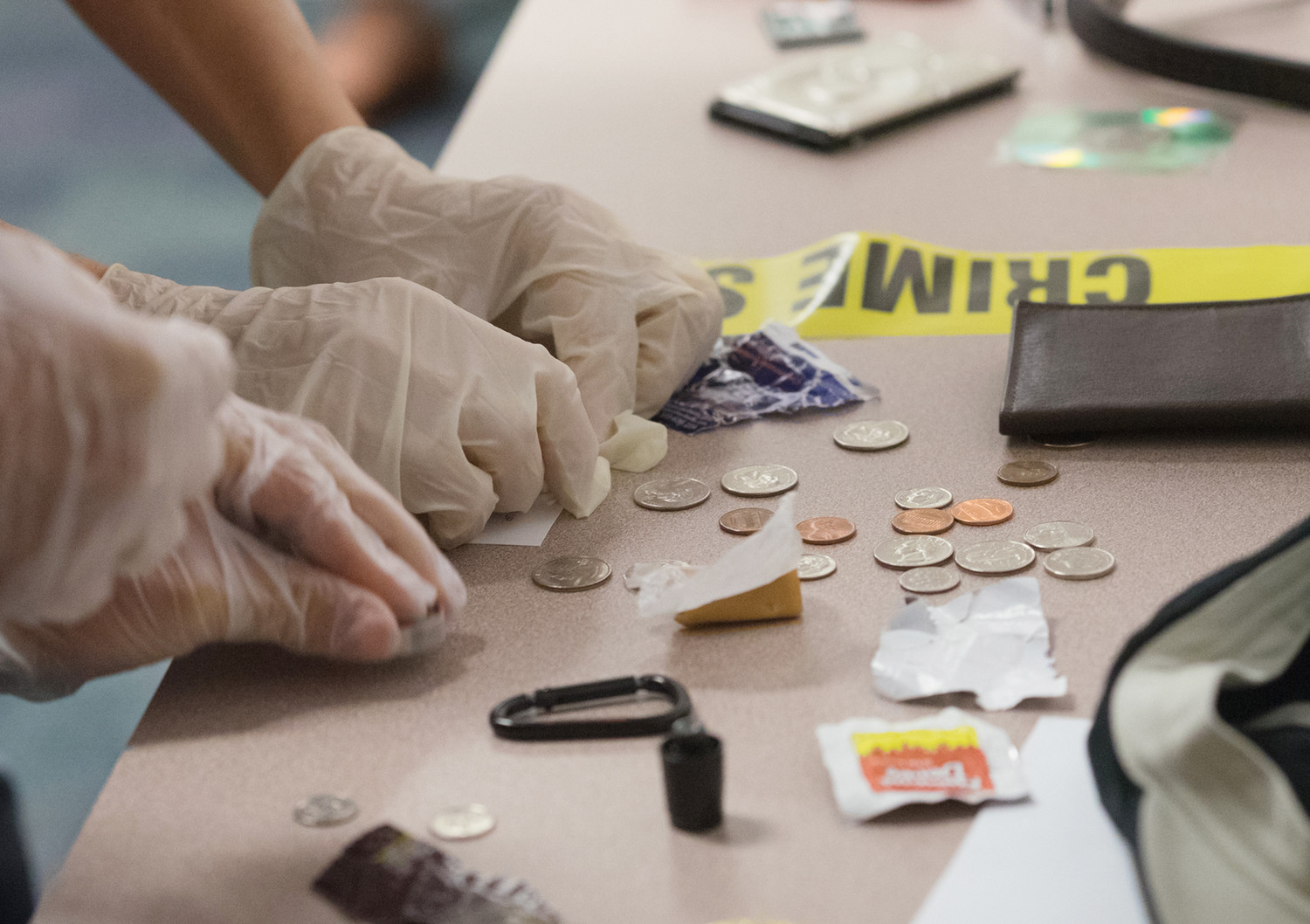The idea of working with former inmates who are adjusting to life outside of prison was, at first, a little intimidating. But Lily Gates, a sophomore majoring in public policy, is finding the experience truly rewarding. “I look forward to this every week,” she said recently after finishing a session helping men put their life stories to music.
Gates, a classically trained violinist who also plays a number of other instruments and who enrolled at JMU as a social work major, is one of seven students working with the men at Gemeinschaft Home, a residential, transitional facility in Harrisonburg for individuals who have been released or diverted from incarceration and who may have a probation obligation with the Virginia Department of Corrections.
The project, the result of a $20,000 grant from the National Endowment for the Arts, involves a series of seven-week classes designed to get the residents to open up and share their life experiences through music and storytelling. They learn to write song lyrics, play instruments and sing. Most of the NEA grant was used to purchase instruments and recording equipment that will remain at Gemeinschaft after the program ends.
JMU music professors David Stringham and Jesse Rathgeber, along with social work professor Cindy Hunter, started the program last fall to study the impact of an interdisciplinary, arts-based project on formerly incarcerated persons, pre-service professionals and community members. The goal is not only to provide therapeutic outlets for these men, but also to challenge community members’ perceptions about them. A public concert featuring the men’s original works will be held at the Forbes Center for the Performing Arts in May.
Sydney Seed, a junior studying music education with a minor in social work, said the experience has opened her eyes. “Never had I even considered that I could use this curriculum for something like this. Just opening my mind to the endless possibilities that exist for social work and music and all of the lives that I could help through that knowledge has changed my life.”
Hunter said the social work students are building on their classroom education by planning and facilitating groups at Gemeinschaft. “They have conducted literature reviews to inform their understanding of the population, the strengths and challenges these men bring and the potential for the arts to influence successful reintegration. It is a perfect example of engaged learning.”
